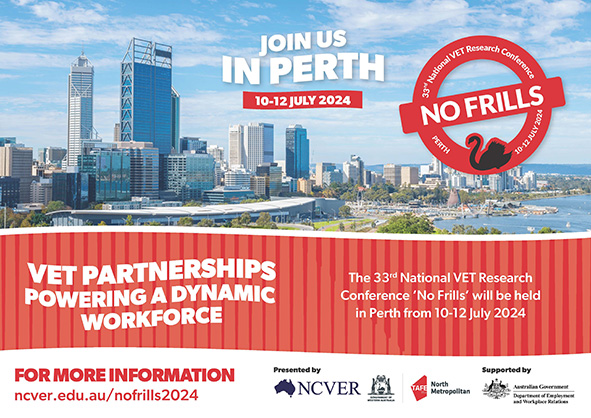This paper by Helen Corben and Kerry Thomson goes back a fair way in time: to 2001 in fact. It “was carried out against a background of ongoing change and greater complexity in the nature of vocational education and training.” So, not sure a lot has changed much. Neither have the messages!
There are a few key features Helen and Kerry point to that make a great VET teacher: a learner focus, technical currency and knowledge, expertise in teaching and learning, having the right personal attributes and values and finally how best to make the journey from novice to expert through professional development! All in all, good VET teaching draws on a rich and complex knowledge base too.
The good!
The best teachers take an individualised approach to their students to meet their needs. They use their professional judgement to adapt what they do and how they do it to not only establish and maintain a positive learning environment but also “tailor the content and delivery of learning material so that all learners benefit from the experience.” Indeed, as the authors point out:
“Expertise in teaching and learning goes to the very heart of what it means to be a professional VET teacher.”
The best teachers “are able to draw selectively from an extensive repertoire of resources and strategies in order to motivate learners and to encourage active learning.”
Professional development in all its forms is also really important. While some are ambivalent about the value and quality of initial teacher training, there is a feeling that the best process is when formal VET teacher training is combined with actual practice. The important thing is to draw from the lessons practical teaching brings to start building capability as a teacher.
Enthusiastic and committed mentoring is really important but often underemphasised in practice. Likewise, networking is something of a lost art that VET needs to rediscover. As Helen and Kerry note:
“teachers continue to draw professional support from networking with others, comparing approaches, exchanging resources and workshopping challenging issues. Reflecting on practice is common even among highly experienced teachers who often continue to adopt a critical, questioning attitude to their work, in a process very similar to that of the action learning cycle.”
Indeed, they also suggest that:
“the provision of more meaningful and relevant professional development opportunities needs to be supported by a demonstration of organisational confidence in the ability of staff to identify and act on self-initiated professional development activities.”
Maintaining vocational currency is important too, and there are a range of ways in which this is best done. In fact, several other authors have looked at this issue, including Toze and Tierney in 2010 and Clayton and her colleagues in 2013. It’s an ongoing commitment of the best teachers to remain ‘grounded’ in their industry. However, what Clayton and her colleagues asked was that if those in industry were judged by the same standards as VET practitioners by VET’s auditors, would they too be deemed current? Maybe not, as it’s tough to stay completely current!
Finally, personal attributes are really important: particularly ‘passion’ and having a view that a teacher is there to help transform peoples’ lives. All this needs a high level of communication and listening skills. Erica Smith and Keiko Yasukawa in their paper on ‘What makes a good VET teacher’ also noted the need for professionalism as well as integrity in the face of the challenges working in the sector brings with it. The best teachers focus on being patient, empathetic, engaging, adaptable, collaborative and sharing. Most of all, they need to see themselves as lifelong learners.
A sad message to end on.
As Helen and Kerry note, there have been significant challenges to the standing of teachers despite their critical role on the effective provision of VET. Even back in 2001, many they spoke to:
“clearly feel that their teaching role is undervalued. Typical comments refer to being asked to do more with less, to lack of acknowledgment or feedback from managers, to the need for outcomes measurement to extend beyond budgets and delivery hours and to the importance of celebrating success, especially at the local level.”
Have things changed at all in over 20 years?








